Agrotek recently wrapped up another successful trip to GreenTech Amsterdam, one of the world’s premier events for horticulture innovation and sustainable agriculture. This marked our third consecutive year attending the conference — and each visit brings new insights, connections, and inspiration for the future.
This year, we were proud to represent British Columbia as part of the official delegation coordinated by Trade and Investment BC. Over the course of two days, we engaged in meaningful conversations with industry representatives from London, Sri Lanka, and the Netherlands, exchanging ideas on agritech innovation and discussing opportunities to collaborate on climate-smart solutions.
One of the highlights of the event was meeting with the Honourable Diana Gibson, BC’s Minister of Jobs, Economic Development and Innovation. We had the opportunity to share Agrotek’s story — from our roots as an Indigenous-owned company to our commitment to transforming agriculture through sustainable inputs like humic-based biostimulants. It was a valuable moment to reflect on how BC’s agritech sector continues to grow and gain recognition on the global stage.
Attending GreenTech also allowed us to explore emerging trends, technologies, and partnerships that could help shape the future of agriculture — from vertical farming to sustainable soil health solutions. It was clear that innovation is not only thriving but being driven by shared values around climate action, food security, and Indigenous leadership.
As we return to Canada, we’re feeling energized by the connections we made and the interest in what Agrotek is building. We believe the future of farming lies in collaboration — and this experience reinforced the value of cross-border partnerships in creating meaningful change.
A big thank you to Trade and Investment BC for making our participation possible, and to everyone who stopped by to learn more about Agrotek.
See you next year, Amsterdam.
Another dry season is already upon us in British Columbia.
The headlines have started again—drought warnings, early wildfires, water restrictions. For many farmers, it feels like we’re back where we started. But this isn’t the same drought story as last year. It’s evolving. And so must we.
At Agrotek, we’ve been asking a question that isn’t making the news:
What happens beneath the surface when the rains don’t come?
The soil story we’re not talking about
When we think about drought, we tend to think about the sky. But resilient farming starts in the soil.
Healthy soil isn’t just about nutrients. It’s a sponge. It’s a living system. It holds water longer. It protects roots from heat. It creates the conditions for crops to survive longer when external inputs run dry.
When soil is depleted or compacted, it loses its ability to support crops under stress. That’s not theory—it’s what we hear from producers every time the summer gets hot too early. And it’s what we’re seeing in our own trials and research.
What the research tells us
One study that caught our attention this year comes from Kwantlen Polytechnic University. Their team is exploring farming strategies for dry conditions—particularly ones that don’t depend on high-tech irrigation or expensive interventions. They’re looking at soil texture, organic matter, and how to “do more with less” in terms of water.
That’s not just academic work. It’s practical, real-world knowledge—and it aligns with what many of us already feel in our bones: if we don’t start from the ground up, we’ll always be in reaction mode.
How we think about drought resilience at Agrotek
This is where humic substances come in—not as a magic fix, but as one piece of the resilience puzzle.
We work with humic acid because it helps soils retain moisture, improve soil structure, and boost microbial activity. That means better water infiltration during rain, and slower evaporation during dry spells. It means roots can access nutrients more efficiently. It means the soil life works harder, so we don’t have to keep chasing it with inputs.
And most importantly—it means a buffer when weather becomes unpredictable.
We know humic substances won’t change the weather. But in seasons like this, every small gain matters. Every ounce of retained water. Every plant that holds on a little longer. Every root system that goes a little deeper.
Where do we go from here?
This drought season, we’re challenging ourselves—and our peers—to reframe how we think about soil.
So we ask:
We don’t pretend to have all the answers. But we’re committed to sharing what we know, learning from what we don’t, and being part of a conversation that goes deeper than the weather forecast.
On May 23, we joined industry leaders, researchers, and students at the Global Institute for Agritech’s spring event, hosted at Simon Fraser University. With over 100 attendees, the gathering brought together a diverse mix of voices to explore the future of agricultural technology in a rapidly changing world.
Our CEO Jonathan Mathias was invited to participate in a panel discussion that focused on the challenges and opportunities facing agriculture in British Columbia and beyond. As the owner of an Indigenous-led company rooted in sustainability and land stewardship, Jonathan contributed a perspective that is often missing from mainstream innovation conversations.
“Agriculture didn’t start with colonization,” Jonathan shared. “Indigenous peoples have been practicing food sovereignty, seed saving, and climate adaptation on this land for thousands of years. That traditional knowledge remains deeply relevant—and should inform how we approach agritech today.”
Throughout the discussion, Jonathan emphasized the need for inclusive, collaborative innovation—one that honours both ancestral wisdom and modern science. From climate-smart production methods to the importance of supporting Indigenous youth and community-led food systems, the panel highlighted the value of integrating diverse knowledge systems to build resilience in agriculture.
The event also served as a valuable opportunity for connection. Following the panel, we engaged with researchers, entrepreneurs, and students who reached out to continue the conversation—proof that the appetite for more inclusive, community-centered agritech is strong and growing.
We thank Dr. Woo Soo Kim and the Global Institute for Agritech for creating this platform for open dialogue and shared learning. At Agrotek, we’re proud to contribute to these important conversations and to continue advocating for innovation that is grounded, respectful, and future-focused.
We’re excited to announce a new partnership that brings an innovative and proudly Canadian product to our customers in Western Canada and the Prairies: Squid Juice by Green Flow, an Ontario-based company specializing in sustainable, bioactive fertilizers.
Squid Juice is a premium, all-purpose liquid fertilizer that’s as powerful as it is planet-friendly. Sourced from calamari processing and formulated using a unique natural fermentation process, this product is designed to enhance soil health, boost plant growth, and improve crop resilience—whether you’re an organic grower or use traditional farming methods.
Why Squid Juice?
At the core of Squid Juice’s performance is β-chitin, a rare, highly bioavailable form of chitin found in squid. Unlike the more common α-chitin (which is difficult for plants to absorb), β-chitin is water-soluble and extraordinarily bioactive. It helps stimulate plant growth, improve soil structure, and even defend against pests and fungal infections.
What’s inside?
Key Benefits for Farmers:
And yes—it’s screened for use in drip irrigation, making it a convenient addition to your current system.
A natural fit for Agrotek
At Agrotek, we’re always looking for sustainable, high-performing solutions that support healthy soils and better yields. Our partnership with Green Flow reflects our commitment to bringing cutting-edge biostimulants and organic solutions to growers across Canada.
Stay tuned—we’ll be sharing more insights, grower tips, and success stories as Squid Juice makes its way into the field.
Want to learn more or place an order? Contact us today!
This month, we had the opportunity to attend three key industry events: the Reservation Economic Summit (RES) 2025, Indoor Ag-Con 2025, and the World Agri-Tech Innovation Summit 2025. Each provided valuable insights into economic development, sustainable agriculture, and the latest advancements in technology shaping the future of farming.
RES 2025: Strengthening partnerships for sustainable land management
Held from March 10 to 13 in Las Vegas, RES 2025 brought together Indigenous leaders, government officials, and business representatives to discuss strategies for economic growth in Indigenous communities.
A central theme throughout the summit was the importance of collaboration in energy and resource management to ensure long-term sustainability. Discussions emphasized how shared efforts across industries can help maintain productive land for future generations. The event also featured a diverse marketplace, highlighting Indigenous artisans and entrepreneurs contributing to local economies.
Indoor Ag-Con 2025: Innovation in controlled environment agriculture
From March 11 to 12, we attended Indoor Ag-Con 2025, North America’s leading event for indoor and vertical farming. The conference provided an in-depth look at emerging technologies in controlled environment agriculture (CEA), greenhouse operations, and hydroponics.
It was an opportunity to connect with industry leaders, learn about new advancements in precision agriculture, and explore strategies to enhance efficiency and sustainability in food production. Discussions also included funding opportunities available to companies expanding into new markets, highlighting the role of investment in scaling agricultural innovation.
World Agri-Tech Innovation Summit: The future of agritech
The World Agri-Tech Innovation Summit, held in San Francisco on March 11-12, brought together agribusinesses, technology providers, and investors to explore innovations transforming the industry.
Key themes included the integration of AI and robotics in agriculture, the development of biological solutions, and strategies for building climate-resilient food systems. The summit reinforced the need for strategic partnerships to accelerate the adoption of new technologies and drive sustainable agricultural practices globally.
Beyond the conferences: A reminder of why sustainability matters
While in the region, we took the opportunity to explore Death Valley, the Grand Canyon, and Hoover Dam by helicopter. Seeing these vast landscapes from above served as a powerful reminder of why sustainability is so critical. Protecting our land and resources is not just about business—it’s about ensuring that future generations can continue to grow and thrive in a changing world.
These conferences provided critical insights into the evolving landscape of agriculture and innovation. The conversations and connections made will play a key role in shaping Agrotek’s strategies moving forward.
We look forward to implementing the knowledge gained and continuing to engage with industry leaders at future events.
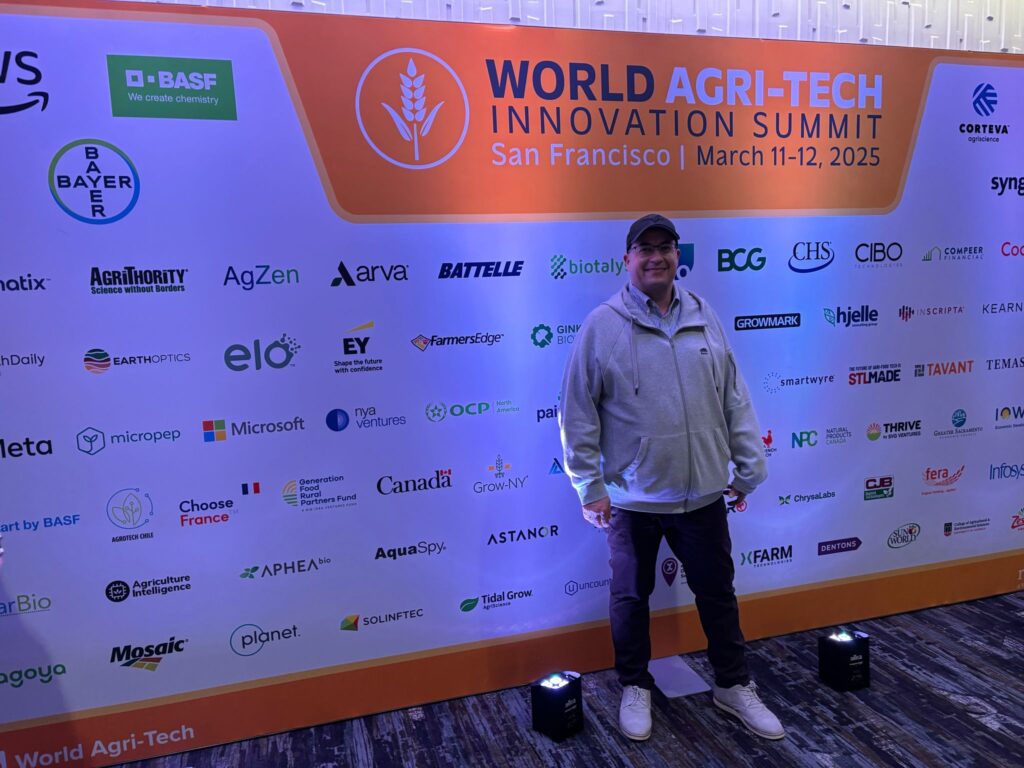
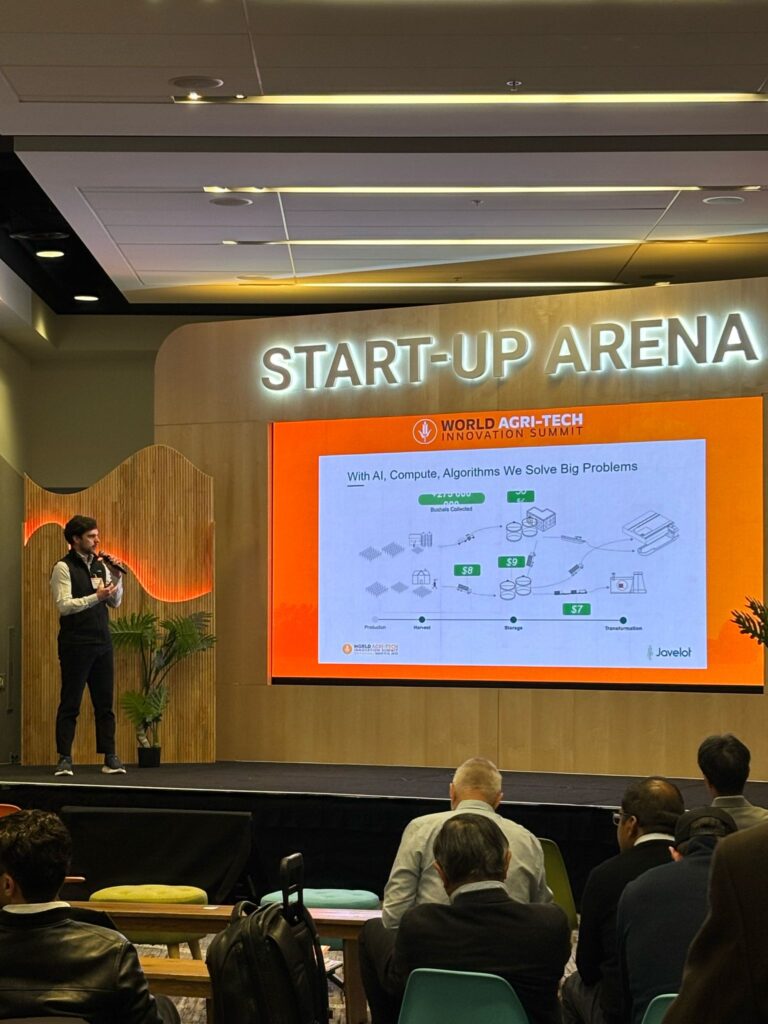

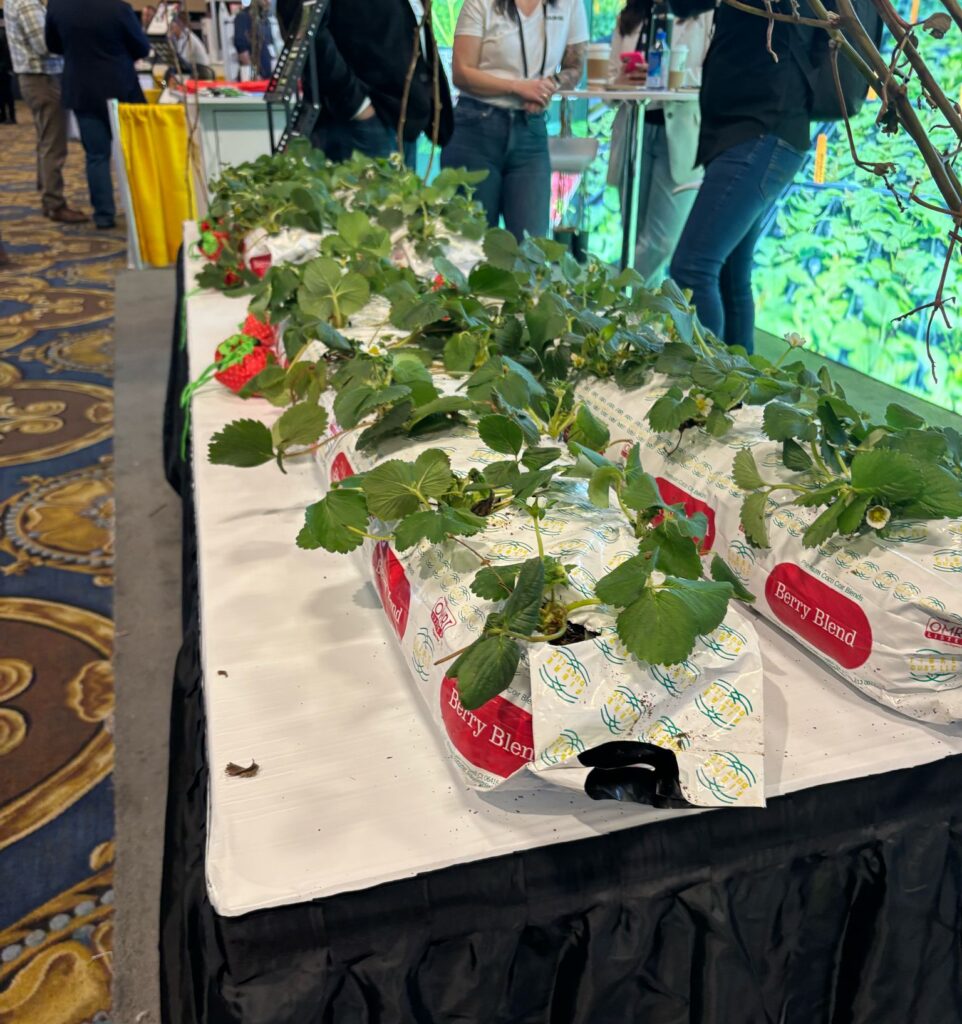
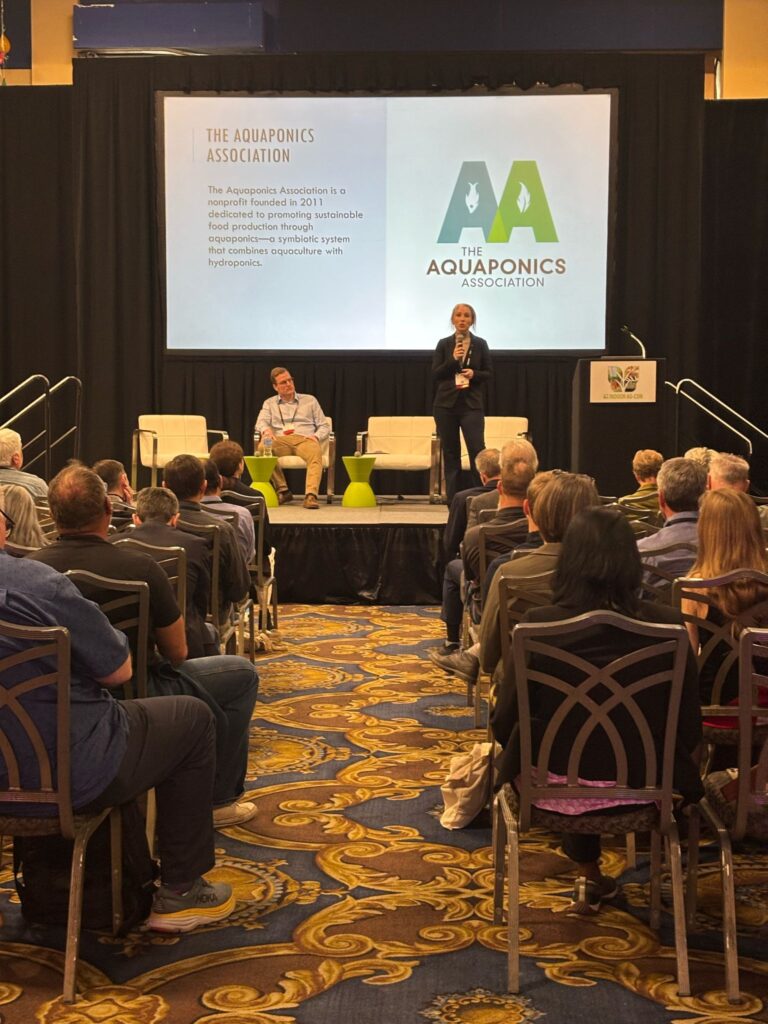


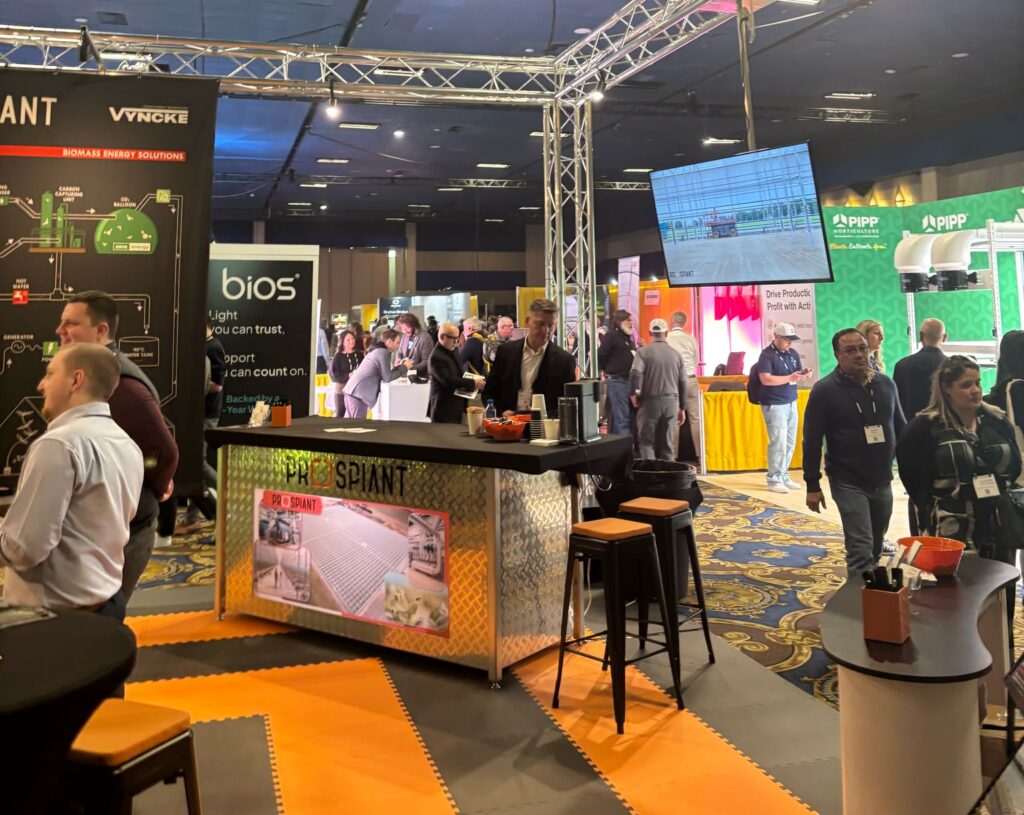




When we leased our facility, we unexpectedly inherited a 2.5-acre blueberry farm with six-year-old plants yielding an average of 22,000 pounds per year. With no prior farming experience, we reached out to our chemist, who suggested a simple and organic solution—humic acid.
We applied 15 liters per acre—twice early in the season and twice more later—without using synthetic fertilizers, fungicides, or pesticides. The results were immediate. Our first season’s yield increased to 26,000 pounds, an 18% boost. Encouraged by this success, we added Queen B, a seaweed-based biostimulant, in the second season. The outcome? A remarkable 33,000-pound yield—a 50% increase from our original baseline.
Beyond quantity, the quality of our berries improved significantly. They were larger, juicier, and ripened earlier, allowing us to enter the market a week ahead of competitors and secure premium prices. The economic and environmental benefits were clear: a 90% reduction in fertilizer costs, enhanced soil health, and a more sustainable approach to farming.
With these promising results, we sought to further validate the effectiveness of humic acid beyond our farm. That’s when we partnered with Simon Fraser University (SFU) and the B.C. Centre for Agritech Innovation (BCCAI). Through this collaboration, we conducted controlled greenhouse experiments on multiple crops, including tomatoes, peppers, blueberries, and elderberries. The studies confirmed significant improvements in yield, plant resilience, and soil health.
A detailed chemical analysis of our products supported our successful registration with the Organic Materials Review Institute (OMRI), certifying them under both Canadian Organic Standards (COS) and the USDA National Organic Program (NOP). These certifications marked an important step in scaling our products for commercial use, ensuring growers have access to high-quality, organic solutions.
Humic acid has transformed how we farm, and we believe it can do the same for others. If you’re looking to improve yields while maintaining soil health, visit our Products section to learn more about how our solutions can help your crops thrive.
Agrotek started with liquid fertilizers, but as we introduced powdered products and new formulas, demand quickly outpaced our equipment capacity. To stay ahead, we invested in two new mixers and upgraded our liquid processing section with stainless steel components. These improvements allow us to produce a wider range of products while maintaining high-quality standards.
Mixing powders and liquids is an intricate process that requires precision in handling vitamins, nutrients, dyes, chemicals, and organic raw materials. Having the right equipment and formulation is key to delivering top-quality products. That’s why we continuously upgrade our facility with modern technology and support local suppliers whenever possible.
Beyond efficiency, safety is a top priority. A well-maintained facility and a rigorous cleaning schedule ensure both product integrity and a safe working environment. Thanks to our team’s dedication to cleanliness and safety protocols, we have maintained a perfect safety record with zero accidents.
Investing in our equipment and workplace isn’t just about productivity—it’s about creating a safe, efficient, and innovative space for our team. These upgrades have allowed us to refine our products, meet increasing demand, and continue delivering the best solutions to our customers.
In the heart of Canada’s prairies, the land holds more than just crops—it carries the potential for a more sustainable future in agriculture. Saskatchewan’s rich natural resources have long supported Canadian farmers, and we are now harnessing these resources to help growers transition to eco-friendly farming solutions.
A shift toward sustainability
For decades, conventional fertilizers have been the backbone of modern agriculture, ensuring high yields to feed a growing population. However, farmers today face increasing challenges—soil depletion, environmental concerns, and the need for more sustainable practices. As demand for regenerative agriculture rises, so does the need for innovative solutions that enhance soil health without compromising productivity.
We founded Agrotek with a mission to bridge this gap. Starting with liquid fertilizers, we quickly gained traction among farmers looking for high-performance solutions. But as the agricultural industry evolved, so did our vision. We expanded our portfolio to include products designed to improve soil structure, increase nutrient retention, and reduce environmental impact.
Unlocking the power of leonardite
One of the keys to our sustainability efforts lies beneath Saskatchewan’s soil—leonardite, a naturally occurring, oxidized form of lignite rich in humic and fulvic acids. This valuable resource is known for its ability to enhance soil fertility, improve nutrient absorption, and promote healthier plant growth.
By responsibly extracting and processing leonardite, we are creating innovative liquid humic acid products that help farmers rejuvenate their soils and reduce dependency on synthetic fertilizers. This shift toward organic biostimulants not only benefits crop yields but also contributes to a more balanced ecosystem.
Partnering with farmers for a greener tomorrow
The transition to eco-friendly farming isn’t just about new products—it’s about collaboration. We work closely with farmers to ensure that sustainability doesn’t come at the cost of efficiency. Through research, field trials, and expert support, we empower growers to make informed decisions that benefit both their business and the environment.
As more farmers recognize the value of soil-first approaches, the shift toward sustainable agriculture is gaining momentum. We are proud to be part of this movement, helping to cultivate a future where high-yield farming and environmental responsibility go hand in hand.
The land has always been a source of nourishment and opportunity. With the right innovations, it can also be a foundation for a more sustainable world. And we are committed to making that future a reality—one field at a time.
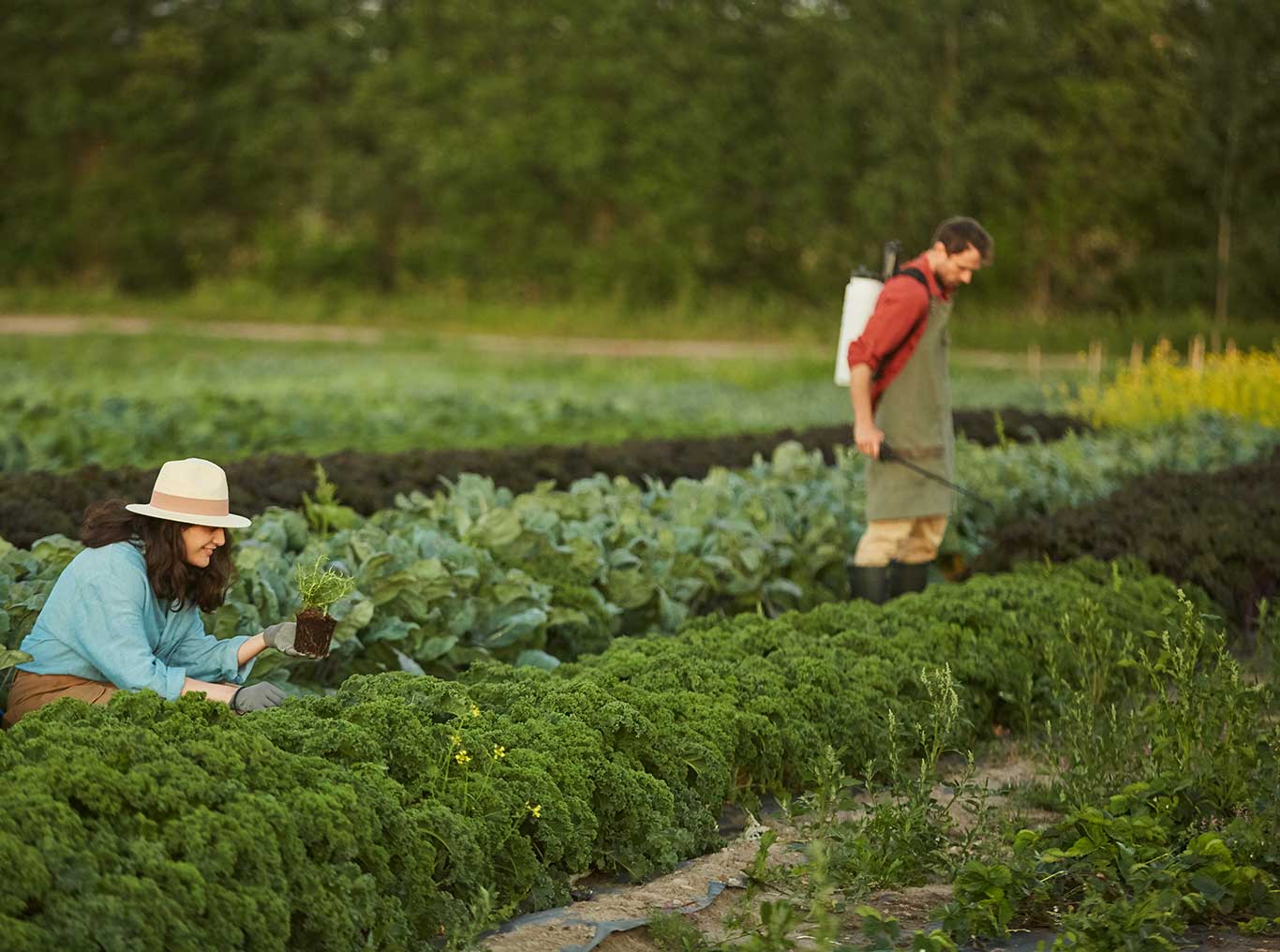
Interested in learning more about how Agrotek can revolutionize your
farming practices? Get in
touch with us today!